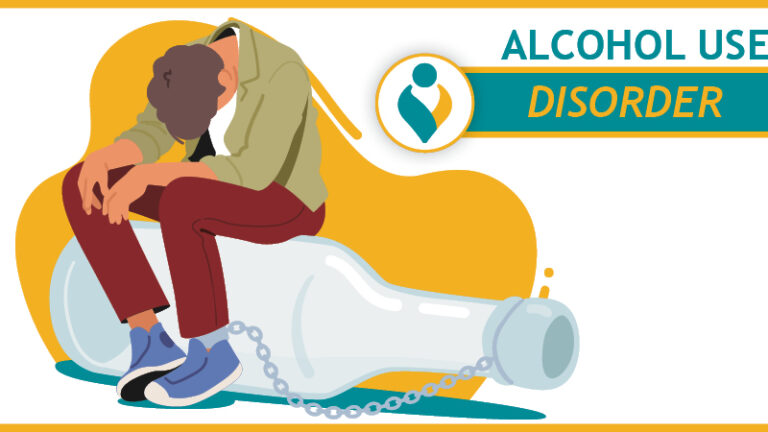
Supporting a loved one with an alcohol use disorder (AUD) can be challenging, but your support can make a significant difference in their recovery journey.
It’s essential to approach the situation with empathy, understanding, and practical strategies to help them achieve and maintain sobriety.
Understanding Alcohol Use Disorder
Alcohol use disorder is a chronic condition characterized by an inability to control alcohol consumption despite negative consequences. It ranges from mild to severe and often requires professional treatment.
Recognizing the Signs: Signs of AUD include frequent intoxication, inability to limit drinking, withdrawal symptoms when not drinking, neglecting responsibilities, and continuing to drink despite negative impacts on health and relationships.
Practical Tips for Supporting a Loved One with AUD
1. Educate Yourself
Learn About AUD: Understanding the nature of alcohol use disorder is crucial. Research the condition, its causes, symptoms, and treatment options. Knowing what your loved one is experiencing can help you provide better support.
Recognize the Challenges: Recovery from AUD is a complex process with many challenges. Recognize that setbacks and relapses are common and part of the recovery journey.
2. Communicate Openly and Honestly
Choose the Right Time: Find a calm, private time to talk to your loved one about their drinking. Avoid bringing up the subject when they are intoxicated or during an argument.
Express Concern, Not Judgment: Use “I” statements to express your feelings without blaming or judging. For example, say, “I’m worried about your drinking and how it’s affecting your health,” rather than, “You’re drinking too much and ruining everything.”
Listen Actively: Allow your loved one to share their thoughts and feelings without interrupting. Show empathy and understanding by acknowledging their emotions and validating their experiences.
3. Encourage Professional Help
Suggest Treatment Options: Encourage your loved one to seek professional help. Offer information about treatment options, such as counseling, medication-assisted treatment (MAT), support groups, and rehabilitation programs.
Offer to Help: Offer to assist with finding a treatment program, scheduling appointments, or accompanying them to their first session. Showing your support can make the process less intimidating.
Be Patient: Understand that seeking help is a big step, and your loved one may need time to make this decision. Be patient and continue to offer support without pressure.
4. Support Their Recovery Efforts
Create a Supportive Environment: Remove alcohol from your home and avoid consuming alcohol around your loved one. Encourage activities that do not involve drinking and promote a sober lifestyle.
Celebrate Milestones: Acknowledge and celebrate your loved one’s achievements, no matter how small. Celebrating milestones in their recovery journey can boost their confidence and motivation.
Respect Their Boundaries: Respect your loved one’s boundaries and their need for privacy in their recovery process. Avoid being overbearing or intrusive.
5. Take Care of Yourself
Prioritize Self-Care: Supporting a loved one with AUD can be emotionally draining. Make sure to take care of your own physical and mental health by practicing self-care and seeking support when needed.
Set Boundaries: It’s essential to set boundaries to protect your well-being. Make it clear what behaviors are unacceptable and stick to these boundaries consistently.
Seek Support: Consider joining a support group for families and friends of individuals with AUD, such as Al-Anon. Connecting with others who understand your experience can provide emotional support and practical advice.
6. Stay Positive and Encouraging
Focus on Progress: Emphasize the positive changes and progress your loved one is making rather than dwelling on setbacks or relapses. Encourage them to keep moving forward.
Be Encouraging: Offer words of encouragement and support regularly. Let your loved one know that you believe in their ability to overcome AUD and are there to support them every step of the way.
Practical Strategies for Daily Support
1. Promote Healthy Habits
Healthy Lifestyle: Encourage a healthy lifestyle by promoting balanced nutrition, regular exercise, and adequate sleep. These habits support overall well-being and recovery.
Mindfulness and Relaxation: Suggest mindfulness practices, such as meditation or yoga, to help manage stress and promote relaxation. These activities can reduce cravings and support emotional regulation.
2. Engage in Positive Activities Together
Shared Interests: Participate in activities you both enjoy that do not involve alcohol. This could include hiking, cooking, attending a class, or watching movies. Engaging in positive activities together strengthens your bond and provides healthy distractions.
Community Involvement: Get involved in community activities or volunteer work together. Contributing to the community can enhance a sense of purpose and connection.
3. Support Treatment and Therapy
Attend Sessions Together: If appropriate, attend counseling or therapy sessions with your loved one. Family therapy can improve communication, address family dynamics, and provide mutual support.
Encourage Consistency: Encourage your loved one to attend all scheduled therapy sessions, support group meetings, and medical appointments. Consistent participation is key to successful recovery.
4. Be Prepared for Relapses
Understand Relapse: Relapse is often part of the recovery process. It does not mean failure but rather an opportunity to learn and strengthen the recovery plan.
Develop a Plan: Work with your loved one to develop a relapse prevention plan. This should include identifying triggers, coping strategies, and steps to take if a relapse occurs.
Respond Supportively: If a relapse occurs, respond with support and understanding rather than anger or disappointment. Encourage your loved one to return to their recovery plan and seek additional help if needed.



